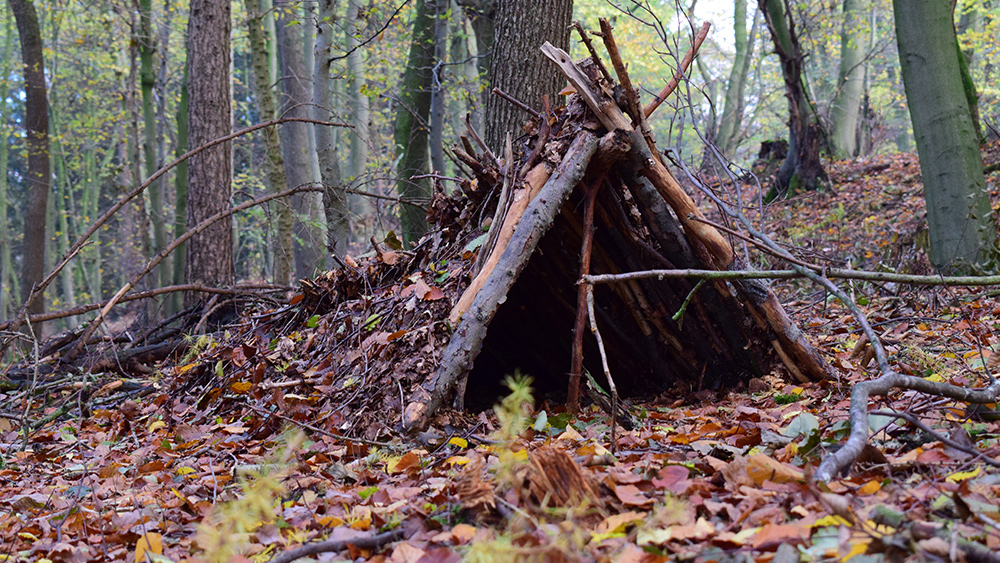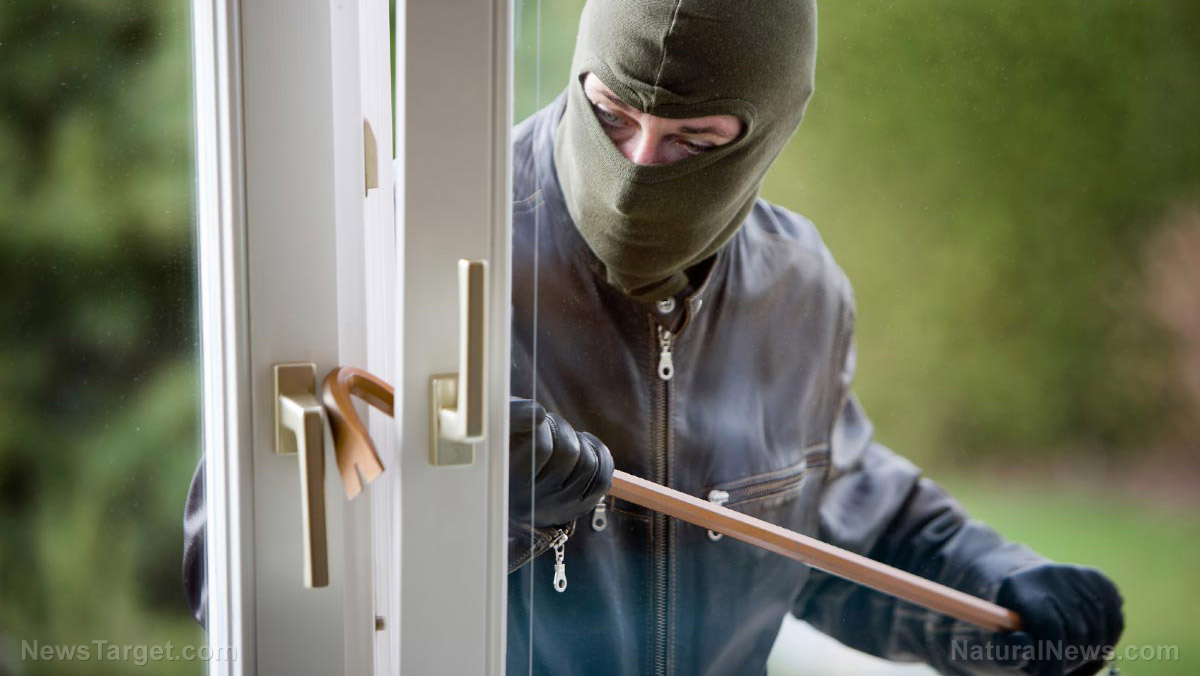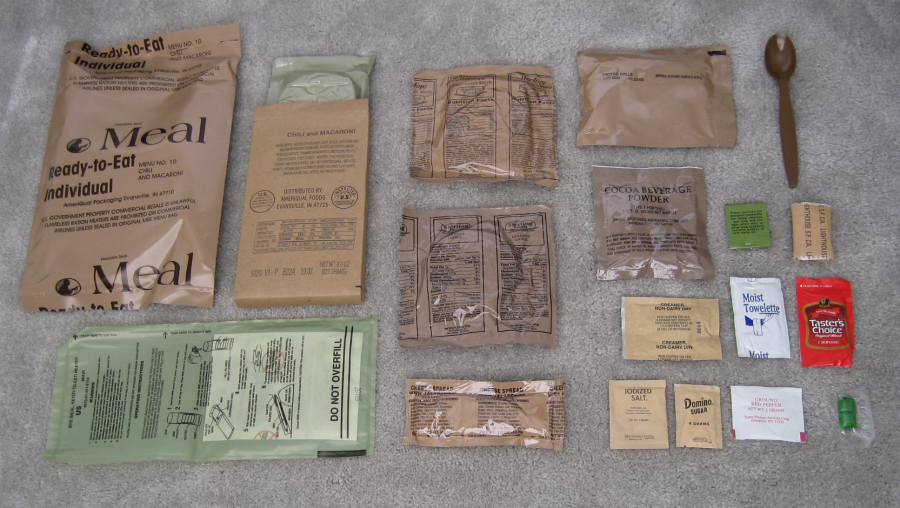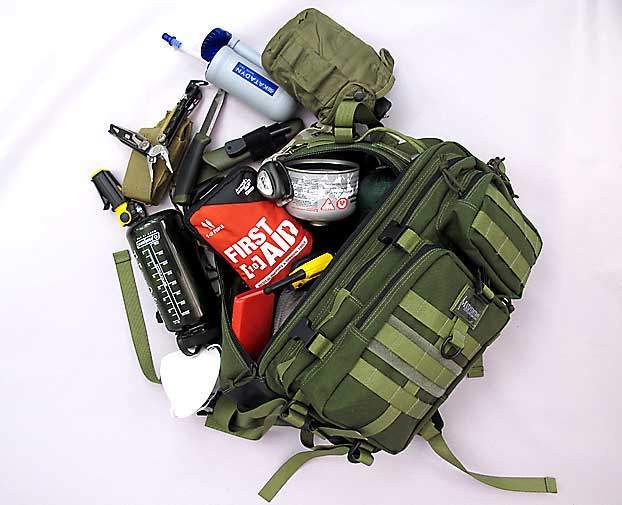Sustainable and independent: Swedish family lives off-grid in a 160-square foot cabin in the woods
03/03/2021 / By Zoey Sky
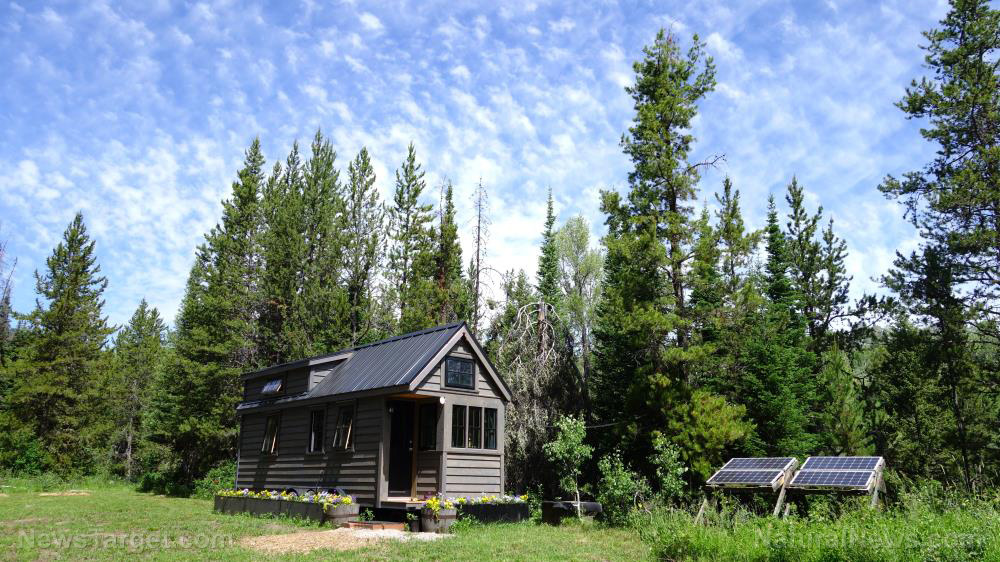
Some preppers are perfectly content to live in the city with just their survival skills and a stockpile of supplies so they can get by when SHTF. However, there are those who someday dream of retiring to a safe and secluded homestead, free from the trappings of a hectic modern life.
For a family of three in Sweden, this dream is a reality thanks to a tiny 160-square-foot wooden cabin in the middle of the woods.
Welcome to the Talasbuan cabin
Mathias and Tova moved into their cabin in a remote Swedish forest eight years ago and they haven’t left it since, with Mathias even giving birth to Ivar in their home.
The small family lives completely off-grid, meaning they don’t rely on the electrical grid and they have no access to running water. The couple spends most of their time raising their son, caring for their farm animals and developing projects on their expanding homestead.
Mathias and Tova, who have declined to reveal their surname or the exact location of their cabin, also talked to Insider about how they film content regularly for Talasbuan, their YouTube channel.
According to the family’s website, the word “Talas” means “Pine Ridge Summer Homestead.” However, there is no direct English translation for “Buan.”
Mathias and Tova shared that they want to live a “sustainable, and independent life, almost completely detached from the rest of the world.”
Producing online content from the woods
Despite living off-grid, Mathias and Tova decided to start a YouTube channel after a friend gave them the idea to post educational videos online.
Mathias, an avid filmmaker, initially struggled to manage his time between filming videos for their channel and working on projects on their property.
The couple created their YouTube channel back in 2015 and the family now has over 11 million views and 174,000 subscribers. Mathias and Tova post videos about different events in their life, from daily chores, Christmas celebrations and their birth video.
Tova shared that running their YouTube channel was interesting and that it’s sometimes hard to keep up with all of the comments and emails that they receive from their many followers.
Since they’re off-grid, the family relies on a small solar panel and a battery to charge their phones and camera equipment that Mathias uses to film and upload their YouTube videos.
Tova shared that she has always wanted to own and live in a fabod so she can spend the summer there with her animals and learn how to make cheese and butter. The family also looks after different animals, such as pet cats and dogs, along with chickens, pigs and sheep.
When she met Mathias, the couple discussed their plans to live in a fabod year round so they can “come closer to nature and feel the shifts in the seasons in a deeper way.”
According to Tova, living in their cabin in the woods is more relaxing compared to living in a regular house.
She even jokes that they have “surely made it harder” on themselves because they chose to settle down in a place without electricity and running water. But “keeping this fabod tradition, and guarding traditional skills” is important to the couple and living in one gives them a “satisfying feeling of living a very resilient life.”
The story of Mathias and Tova
Mathias hails from Finland and Tova is Swedish.
She grew up in a village close to the cabin and the two met in 2011. A year later, the couple decided to move into the cabin on Tova’s family land.
Tova and Mathias both wanted to have a “sustainable, free, and ‘resilient’ lifestyle.”
He shared that living in their cabin allows them to provide for themselves. If something breaks, they can fix it using their skills and materials onhand.
And since the cabin is on Tova’s family land, the two of them are able to live off-grid debt-free, something both of them are grateful for. The cabin was originally a fabod, a place historically used as a summer pasture for the grazing of livestock in Sweden.
A fabod is meant to be completely isolated and often includes other simple buildings like a cattle shed, storage cabins and a cooking cabin.
Even though people stopped running fabods in the middle of the 19th century, there are still around 80 in use today.
Fabod’s were simple log cabins meant only for summer use, but the family lives there year-round.
At first, the couple planned to temporarily stay in the cabin as they decided what to do next. However, they decided to live in their cabin permanently because they loved the place and they eventually had plans to expand their property.
After several months, the couple added several renovations to the house: They changed the logs in the foundation, painted the walls to make it brighter and cleaned the cabin.
Mathias and Tova have also added furniture, built new appliances and added personal touches to make the cabin more homey.
The cabin is isolated. It’s two kilometers (1.2 miles) from the closest village and 100 km (62 miles) away from a city. The village has no shops and is only residential, but the couple shared that it gives them a sense of community.
Mathias and Tova’s extended family lives in the village and the couple offers to help out with various chores and building projects.
The couple also visits the village occasionally to wash their clothes in a washing machine or to shower in the winter. These small hiccups have inspired Mathias and Tova to build a sauna on their property soon so they can do their laundry and shower on their own land.
The couple gets their water from a nearby freshwater stream. During the summer, they shower in the stream as well. (Related: Homestead must-haves: 4 Off-grid amenities for your property.)
Mathias and Tova use an outdoor toilet attached to the side of their cabin. Tova shared that it’s sometimes “difficult” to use the bathroom, particularly when the weather is below freezing.
Thankfully, the cabin itself is “homely and cozy” after the couple decorated it with books, candles, picture frames, and assorted plants. Without electricity, Mathias and Tova use candles and an old kerosine lamp to light their cabin and they use a fire as their main source of warmth.
When the temperature drops below zero in the winter, the cabin sometimes gets encircled by deep snow. It even gets so cold that Mathias and Tova keep their refrigerated items in a kitchen cupboard near the floor.
During the summer, they store most of their food in the two holes they’ve dug in the ground. The hole keeps a temperature of around 8 C (46 F).
The couple is currently building an earth cellar that they will use as a new fridge. Tova also plans to use it as storage space for aging cheese.
The couple makes most of their food on their own and nets in their roof store and dry different herbs they’ve harvested from the forest.
Mathias and Tova are skilled homesteaders even if they don’t call themselves as such: Tova knows how to make artisan cheeses and Mathias has knowledge in butchery, fermentation and smoking meat. They both share their various talents and interests with their many followers on YouTube.
Even though their cabin is located in the Swedish wilderness, Tova and Mathias rarely feel lonely. The couple also doesn’t have plans to leave their cabin.
In fact, they both have plans to work on various projects within the next few years, such as building a bigger cabin, a creamery to sell cheeses and a sauna.
Mathias and Tova also hope to continue inspiring others to live more sustainably. They also want to teach more people about their self-sufficient way of life.
Sources include:
Tagged Under: green living, homesteading, off grid, preparedness, prepper, prepping, solar power, survival, survivalist, sustainable living, Sweden, Talasbuan
Get independent news alerts on natural cures, food lab tests, cannabis medicine, science, robotics, drones, privacy and more from NewsTarget.com
Get independent news alerts on natural cures, food lab tests, cannabis medicine, science, robotics, drones, privacy and more from NewsTarget.com
RECENT NEWS & ARTICLES
SHTF.News is a fact-based public education website published by SHTF News Features, LLC.
All content copyright © 2018 by SHTF News Features, LLC.
Contact Us with Tips or Corrections
All trademarks, registered trademarks and servicemarks mentioned on this site are the property of their respective owners.

